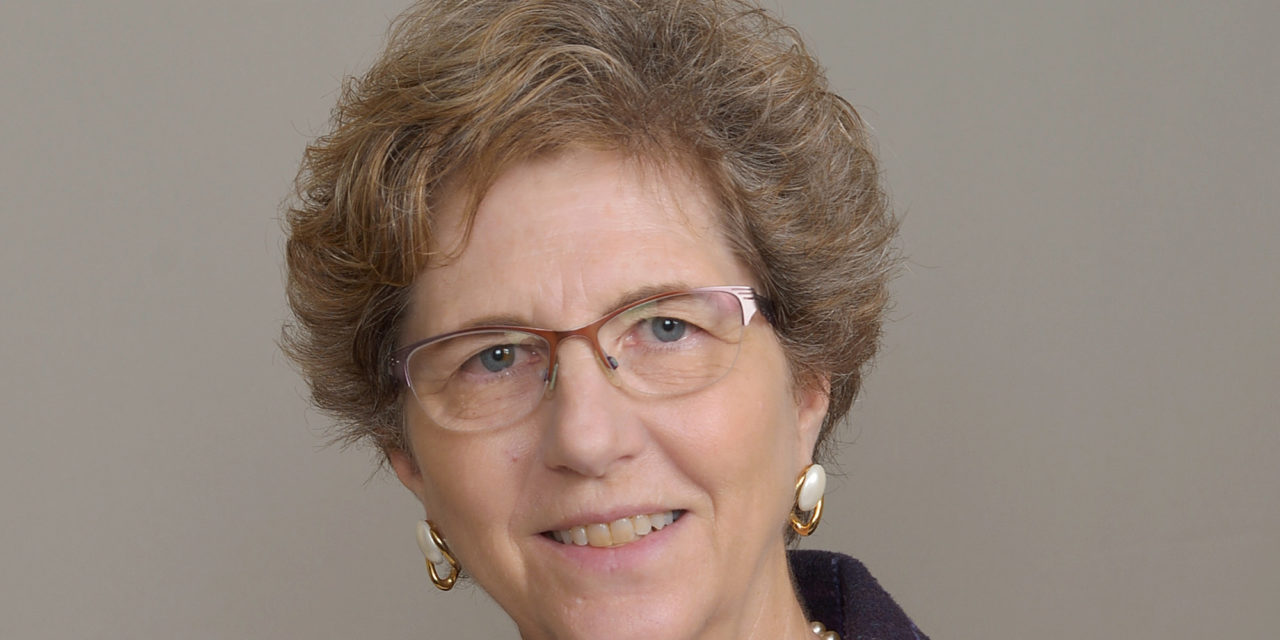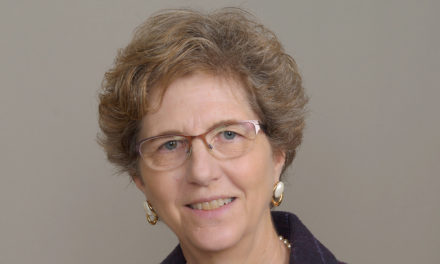
Office of Children’s Mental Health looking to focus efforts

Linda Hall, the new director of the Office of Children’s Mental Health, said they’re hoping to focus their energies on a a few key areas to improve child well-being in Wisconsin.
Hall, who led the Wisconsin Association of Family and Children’s Agencies before joining the office last month, said in a recent interview the office also wants to convene a greater number of people and groups “to join us in really improving the mental health and well-being of kids in Wisconsin so they can really grow into healthy adults.”
Edited excerpts from the interview are below.
WHN: Why did you decide to lead the office?
LH: I’ve been an advocate for mental health, and in particular children’s mental health, in my previous position. I have also been on the Office of Children’s Mental Health stakeholder group, which is our collective impact partners. I’ve been involved with the office in supporting its work and very interested in the possibilities of what we could be doing here. So in stepping into this role, I’m looking to continue on some of the important work that the office has done around trauma-informed care and advocating for lived experience, so involving people with lived experience with mental health treatment in developing policies, but also taking more of a focus on these things we can be doing and coordinating efforts across the state departments that are child and family serving state agencies.
WHN: What do you see as some of the possibilities of the office?
LH: If we think about the situation we have right now with children’s mental health, there are a lot of concerns right? We know that one in five children are diagnosed with a mental illness. We know that teens in Wisconsin are suiciding at a higher rate than youth in other states. And we know that teachers are pretty overwhelmed by the level of toxic stress they see their students bringing with them to school. And families are struggling to support their kids and provide for their mental well-being. So those concerns are out there.
But we also have a lot of possibilities and new knowledge in this field in that we know a lot more about how children’s brains develop. That leads us to new strategies for how to work with them. A trauma-informed care approach is important to that, where we’re asking, ‘What happened to you?’ rather than, ‘Why did you do what you did, why did you behave the way you did?’ So this creates new possibilities for us in terms of thinking about how we’re addressing these broader concerns.
Part of our responsibility is to coordinate activities and initiatives across the four departments that have special responsibilities for children and families. That’s the Department of Health Services, Department of Children and Families, Department of Public Instruction and Department of Corrections. So all of those departments have good activities going on. What we’re going to be looking at is how can we bring those activities more together, how can we improve the integration of what they’re doing. And then part of our responsibility is to monitor performance, and whether we’re making improvements in terms of supporting children’s mental health.
WHN: Are you looking to take a different approach than the office has taken in the past?
LH: I think we will be building on what it has been doing. But we’re looking to provide a little more focus, so looking to identify some areas in children’s lives where there are particular things going on that we might address. We are in that process right now of reviewing everything that the office has been up to, reviewing our annual report. We are mandated to do an annual report where we provide a lot of demographic about children and their mental health and what the facts are about children’s mental health and services in Wisconsin. So we’re looking at everything and plan to be building on that but also really getting to the point where we’re identifying a few areas of focus. We anticipate getting to the point where we’re really going to be identifying measurable ways to show where we’re making progress.
WHN: What are you considering to focus in on?
LH: I’m sure that teen suicide will be one of those areas. It’s clear that we have a problem with more kids in Wisconsin suiciding than in other states. We know that there are a lot of factors about it. We know that there’s a lot of interest in that. That is one of the advantages of being in this office at this time is that there’s clear, bipartisan support for addressing children’s mental health. And suicide is one of the areas we will for sure be looking at.
WHN: What are ways to address teen suicide?
LH: We know that there are a lot of good things happening out there right now. There’s more energy and services being provided at schools through school mental health programs. We think there’s more that can be done in that regard. There’s some training that’s going on out there. We also know that there are more opportunities to build on some of the help hotlines that are out there, connecting teens together to support each other. We want to do like an environmental scan first and kind of look at everything that’s out there and then from that decide what are the areas where we think there’s the most opportunity to move the needle on some of what’s happening for kids in Wisconsin. So it’s a combination of education, bringing awareness and then looking at how can we support programs that work.
WHN: What other challenges is the state facing when it comes to improving children’s mental health?
LH: I can give you another example. That would be concerns about screen time, so kids spending a lot of time on their phones or on the computer. So there’s the issues around too much screen time and how can we get kids more socially competent, to be engaging with other kids more, getting out, doing more activities, which should also reduce some of the cyberbullying that people are really concerned about. So what we’re going to be looking at in that area is how can we reinforce social and emotional competencies in kids of all ages.
And, of course, a piece of all of what we will be about is continuing to reduce the stigma around mental health and mental health treatment because that’s still a reality out there. There are many programs that have been started in Wisconsin that help to address that, but we think that there’s still more that can be done.
And I do want to say that Wisconsin is a leader in terms of what we’re doing in school mental health. We have many programs going. And schools are developing their own mental health programs and connecting kids to treatment providers in their community. Or we have therapists going into the schools and working with students and also coaching teachers on how to work effectively with the students that the therapists are working with and recognizing that they have some issues. So the teachers can get involved in the treatment plan and support that health and wellness for those kids.
This article first appeared in the Wisconsin Health News daily email newsletter. Sign up for your free trial here.





